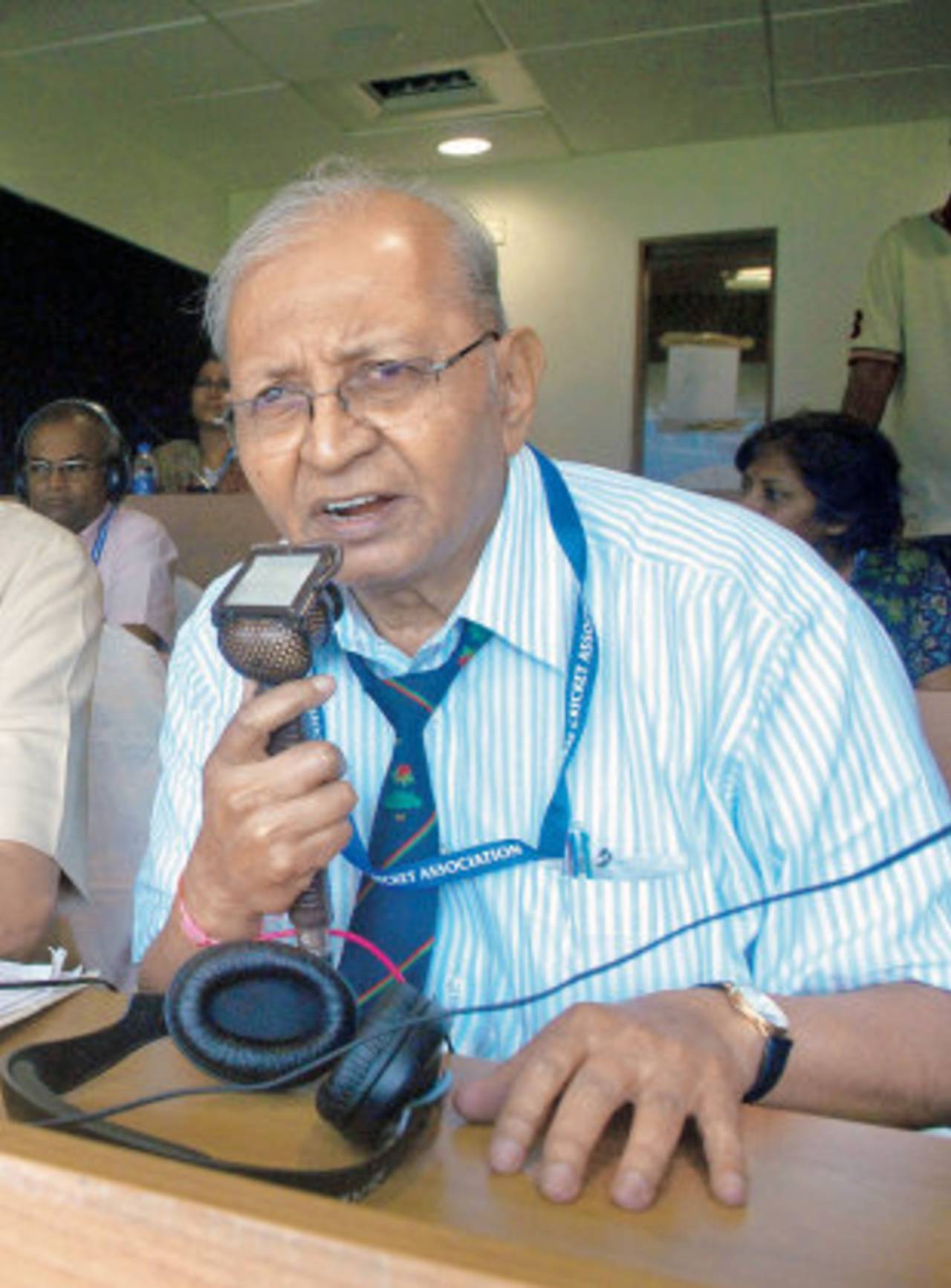A style of his own
His English wasn't as stylish as that of other commentators but Suresh Saraiya could woo the listener with his meticulous preparation and infinite enthusiam
Harsha Bhogle
19-Jul-2012

Suresh Saraiya: a compelling voice due to his storytelling skills • Mid Day
And so, quietly, Suresh bhai moved on. He didn't call time, didn't read out his own card, didn't shut the old accounts-style register in which he wrote down everything he had prepared, didn't look wistfully out to the ground. No, he just moved on.
He had been lonely ever since his wife Meera, the strength of his life, passed away a few years ago. He was wedded to her and to cricket, and nothing meant more to him than the Cricket Club of India and the Brabourne Stadium, for that was where his journey as a Test match commentator began. He often walked there and lamented that it was no longer his.
If he had looked at his scorecard, he would have been proud of what he did. A simple Gujarati middle-class boy, always aware that those around him spoke English better, he fought his way through the system, sometimes worked it, often felt frustrated by it. But he could be proud that he belonged to the only really good era of radio broadcasting in India. There were other giants around him: Pearson Surita; my favourite, Anant Setalvad; the gentlemanly Dicky Rutnagur; Devraj Puri and his son Narottam; but Suresh bhai stood out because he was different. His accent, his choice of words, his storytelling.
His success lay in not letting his shortcomings limit him. He evolved a style of his own, and that is what radio is all about. When at school, in the days when radio was the only medium around, I would barrack for Setalvad, while my friends would say "long layyyyg" in Suresh bhai's manner. They loved him for his style. Years later I shared a commentary box with him many times and waited for the "long layyyyg". It always came and we could laugh over it. "Mota bhai," he would say, and launch into a Gujarati line, which he then explained.
No one I have worked with prepared more meticulously than he did. He would be at the ground the previous evening, looking at the grass, talking to the groundsman, studying the pitch and the outfield. He would write down all the stats in his large register, and by the time he came early to the game the next morning, in a shirt and tie, he was ready.
Ah, the tie. He berated me one day for turning up in a t-shirt. To me, radio was a fun, informal medium, and I dressed that way. Not so the compellingly old-world Suresh bhai. "Mota bhai, first day toh tie pehno. [At least wear a tie on the first day.] You are a commentator, you know." I agreed and also committed to a ritual. Every time I went on a tour he wasn't on, I would bring him a tie. And he would wear it with pride, with a smile, "Mota bhai... dekha! [See, big brother!]"
All India Radio meant everything to him. AIR and Central Bank of India, which gave him a job and a livelihood all his life, for which he was always grateful. Sometimes I feared AIR clogged his mind, but that was his world. AIR was his baggy green or his India blazer.
We were having breakfast at the Protea Hotel in Durban in 1992 on the morning of the first Test match to be played in South Africa since 1970. We had organised the trip ourselves. AIR had only booked the lines and agreed to pay us a daily fee. Suresh bhai was like a child - up early in the room we shared throughout the tour and pottering around as if he were to open the batting. In his own way, he was. Suddenly at breakfast he broke down, and I didn't quite know how to react. "I never thought a Gujarati boy from a middle-class family would be the first Indian voice to be heard from South Africa," he sobbed. He was proud and grateful at the same time. I saw that many times.
It was fun hearing the voice next to me that I had heard in the stillness of the night and at the crack of dawn from somewhere in the world. There is an eternal magic to radio and Suresh bhai was a big part of it. Sadly, while he might have passed on yesterday, radio broadcasting in India accepted its own demise many years ago.
When I got back from Australia this March, I forgot to give him the tie. Deep inside I knew I had missed out on something. I will give it to him before he starts his final journey.
Harsha Bhogle is a commentator, television presenter and writer. His Twitter feed is here